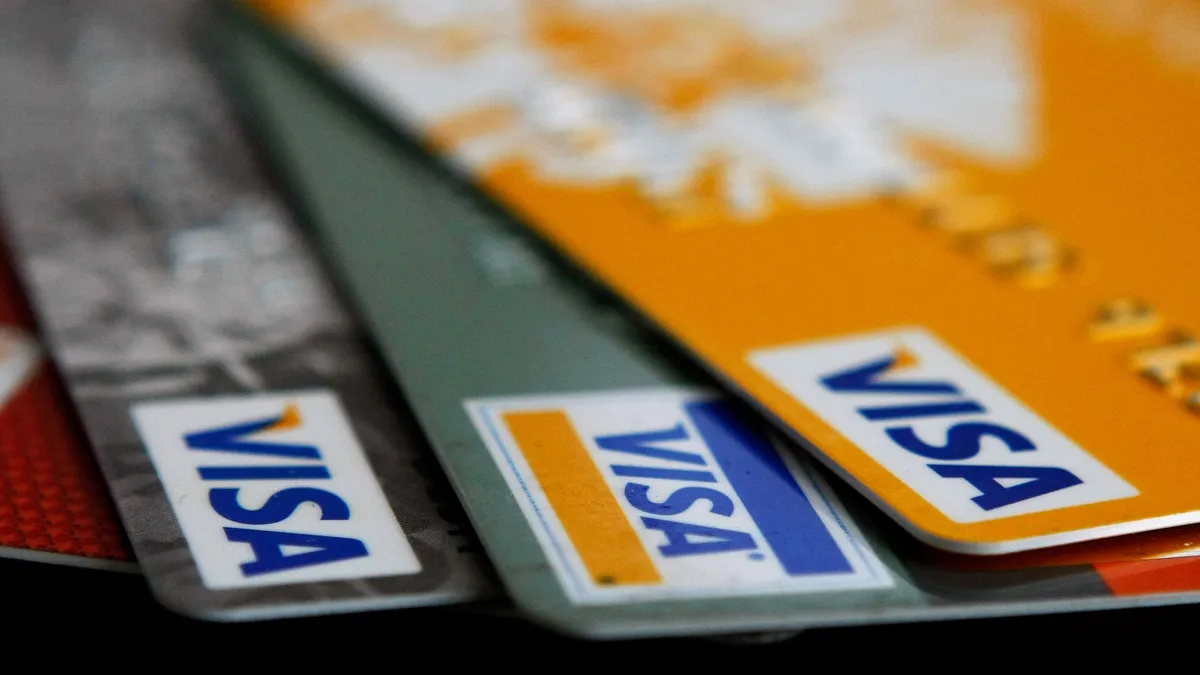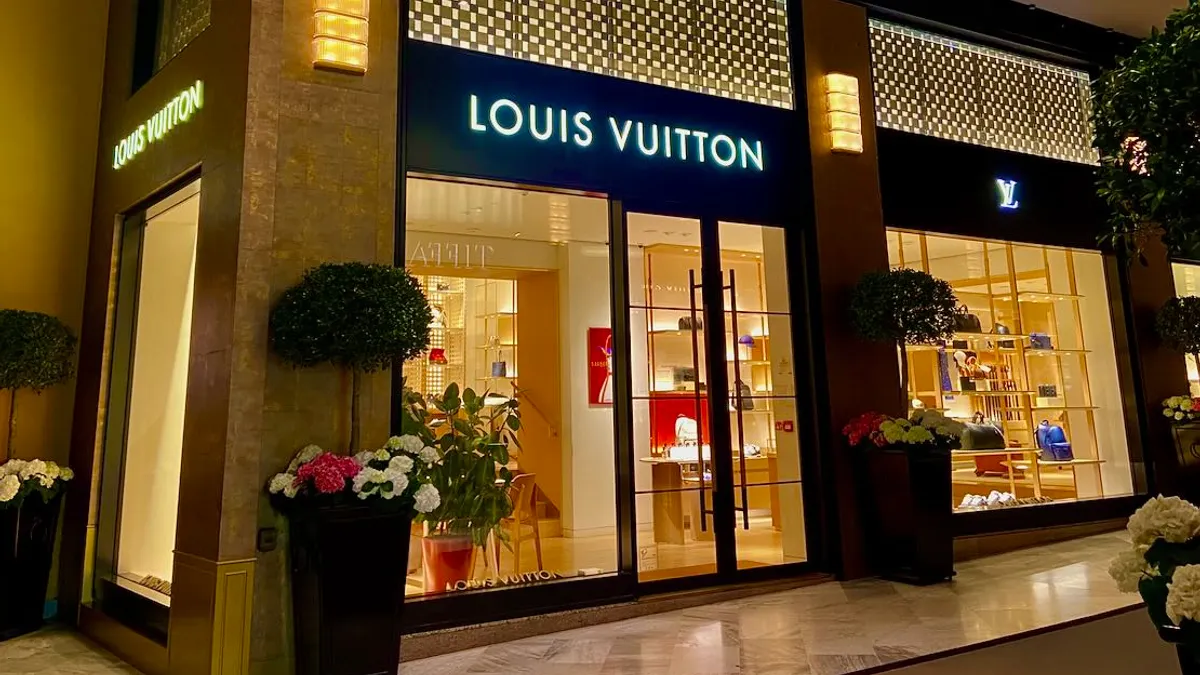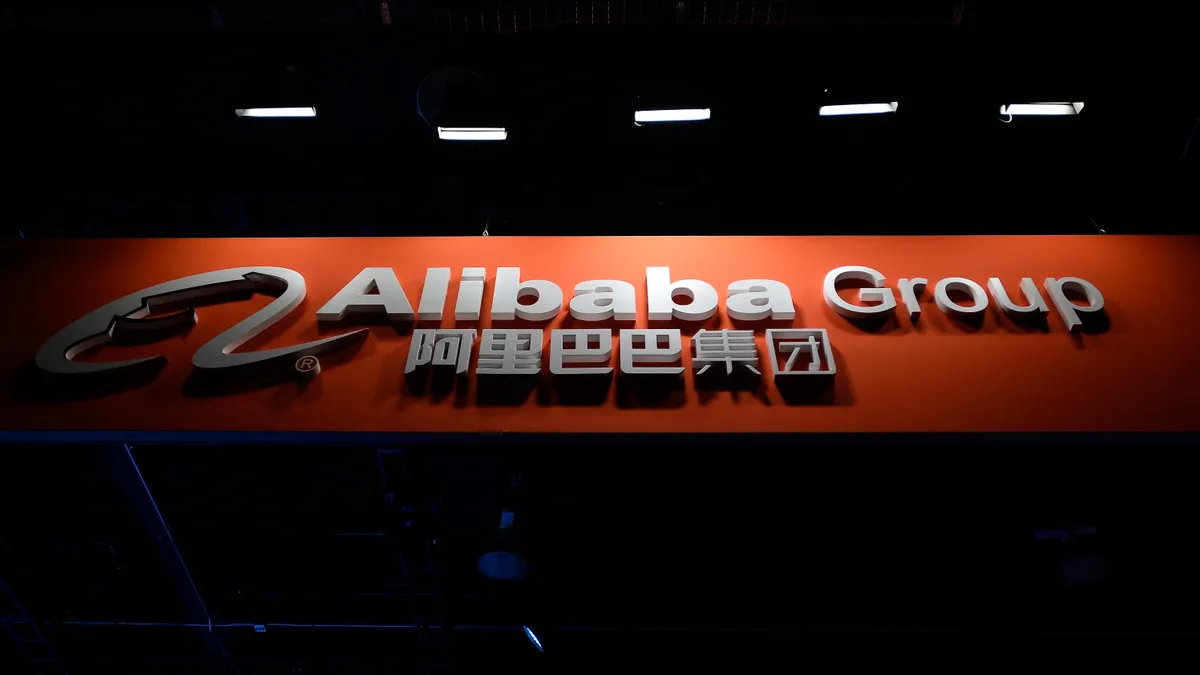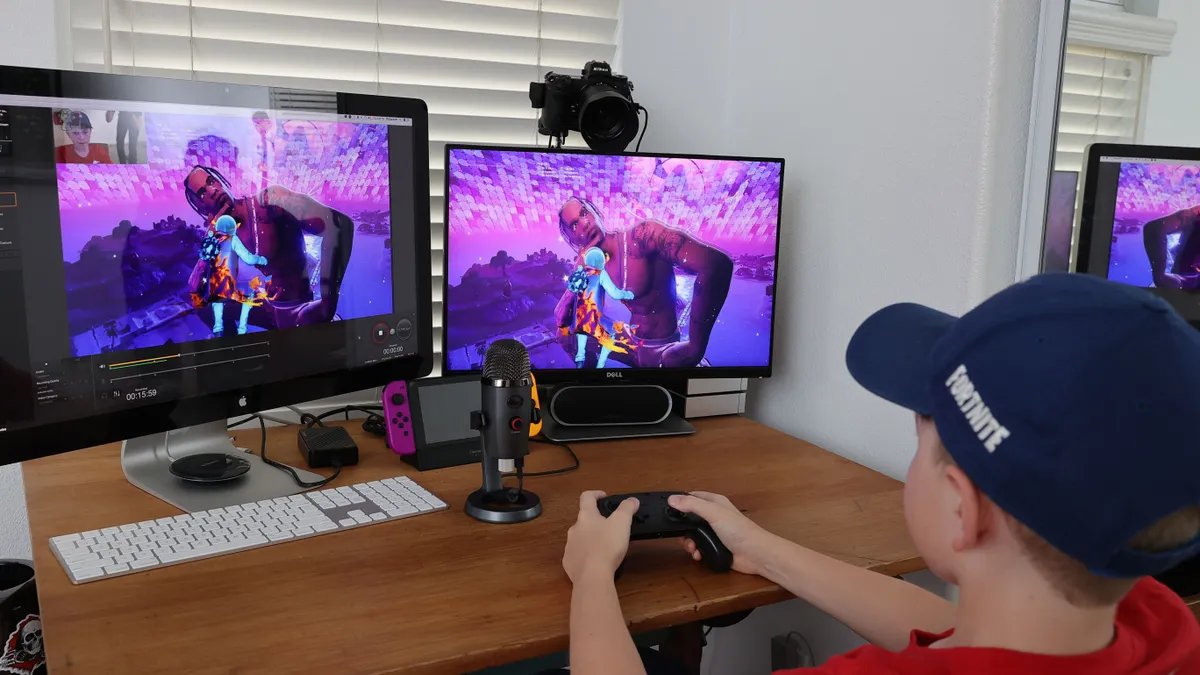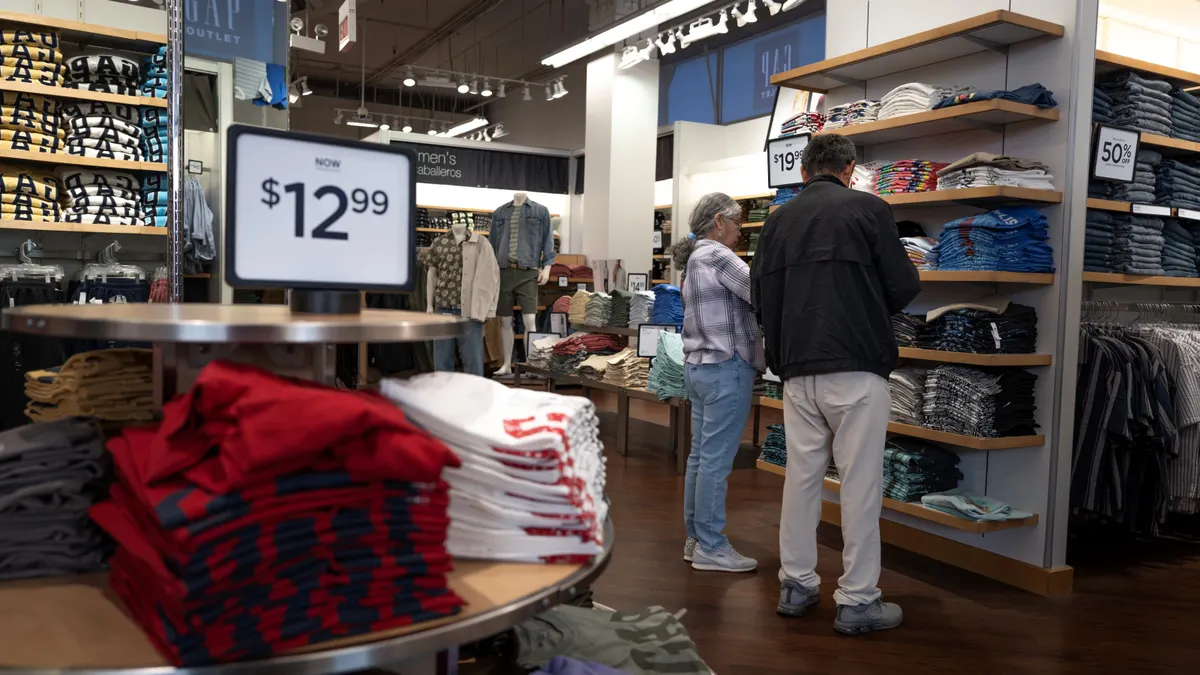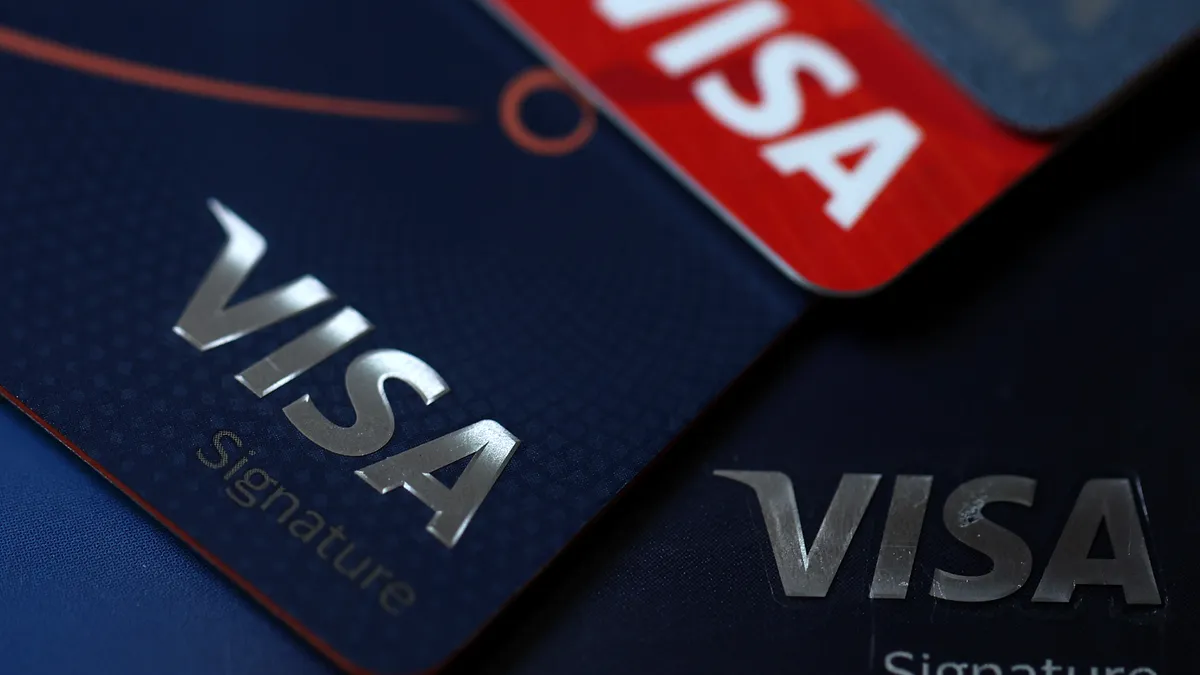The U.S. lawsuit against Visa shows how the company sidelined card network rivals, but perhaps more strikingly it describes how the dominant card company co-opted competition from fintech rivals over years.
Visa used its heft in the U.S. market to neutralize would-be competitors with incentives, and threaten them with higher fees, the Department of Justice complaint filed Tuesday argues. The targets of Visa’s tactics included big tech companies PayPal, Apple, Block’s Square and others as it angled to remain the top payments player. The card network entered agreements with digital rivals that forced them to not compete with Visa, the 71-page lawsuit says.
While the civil antitrust lawsuit filed in the U.S. District Court for the Southern District of New York revolves around Visa’s allegedly anticompetitive activities in the decades-old U.S. debit card market, it seeks to show how Visa stopped the development of newer digital payment tools, too. Ultimately, that injured U.S. consumers, merchants and payments competitors, federal prosecutors contend.
“Visa’s agreements with these companies, including Apple, PayPal, and Square, have succeeded in transforming these potential competitors into partners to the detriment of competition from those would-be rivals and Visa’s own incentives to innovate, and at the expense of American consumers and American merchants of all sizes,” the lawsuit says.
In a statement Tuesday, Visa’s general counsel, Julie Rottenberg, said the lawsuit “ignores the reality that Visa is just one of many competitors in a debit space that is growing, with entrants who are thriving,” The San Francisco-based company will “vigorously” defend itself, she added.
Dealing with ‘frenemies’
As the lawsuit recounts a Visa chief financial officer explaining at some point, “[e]verybody is a friend and partner. Nobody is a competitor.” That CFO then added: “The only issue is to figure out how to make it worth their while to partner with us. And so far, we’ve managed to do that, whether it’s with wallets, whether it’s with large tech companies, whether it’s with large merchants.”
With control over 70% of the U.S. debit card payments volume, Visa is nearly three times larger than its nearest competitor, Mastercard, according to the lawsuit. And a pack of tiny alternative networks, including Shazam, collectively have even less market share so Visa seemed less concerned with them. It was the well-financed, major technology companies that loomed as a bigger threat.
“Visa feared that its Big Tech ‘frenemies’ would launch debit networks that compete with Visa by displacing card-based funding options with payments directly from consumers’ bank accounts,” the lawsuit says. “This fear was heightened by new, non-card-based payment rails which created cheaper alternatives to Visa’s payments rails.”
So Visa was quick to line up partnerships and other cooperative agreements with fintechs, also including Google and Amazon, that maintained its exclusive role in providing debit card payments services, that also used its credit card services as part of the package at times, according to the lawsuit.
Rivals building two-sided networks
Visa’s unique strength in the market derives from its huge merchant clientele on one side of its card networks, and its massive reach with consumers through bank card issuers on the other side of the network. The company was most wary of technology companies it figured might be able to build out both sides of a new network.
“Visa knew that tech companies like PayPal, Apple, and Square had acceptance at millions of merchants and relationships with over one hundred million accountholders in the United States,” the lawsuit says.
Specifically, Visa considered Apple and its Apple Pay tool “an existential threat,” according to the lawsuit. In addition, Visa apparently thought Apple was working with a large debit issuer to build a network that didn’t rely on Visa or Mastercard, according to the lawsuit.
As a result, Visa entered contracts with Apple that were almost “give away deals” to win the big tech company’s agreement that it wouldn’t seek to develop payments functions that might compete with Visa’s card rail or offer incentives that might disintermediate Visa’s services, according to the lawsuit. It had a similar deal with the mega retailer Amazon, the Justice Department says.
Visa also considered PayPal a major threat to its business so in 2016 it signed a major contract with the digital payments pioneer to blunt that threat, federal prosecutors argue in the lawsuit. Visa used its “standard playbook of threatening high fees and dangling big payoffs to move PayPal transaction volume back to Visa’s rails and stop PayPal from competing aggressively against Visa,” the lawsuit says.
“We are not commenting on this pending litigation,” a spokesperson for PayPal said. Spokespeople for Apple, Block, Google and Amazon didn’t immediately respond to a request for comment.
Visa also entered multiple contracts with Square, now a unit of the digital payments company Block, aimed at holding back competition from its Cash App payments tool. “After signing the first contract with Square in 2014, a Visa executive stated, “we’ve got Square on a short leash and our deal structure was meant to protect against disintermediation.”
Still, when Square introduced a new payments service in 2016 called Cash Drawer for storing funds in a digital account, Visa took aim at the feature. “Faced with the risk of paying higher fees and other penalties on its Visa debit transactions, Square quickly backed down and removed the feature,” the lawsuit says.
More recently, Visa used its leverage with Square in 2023 to secure a commitment from the tech company that it would send 97% of its Cash App transactions over Visa’s rails, according to the lawsuit.



